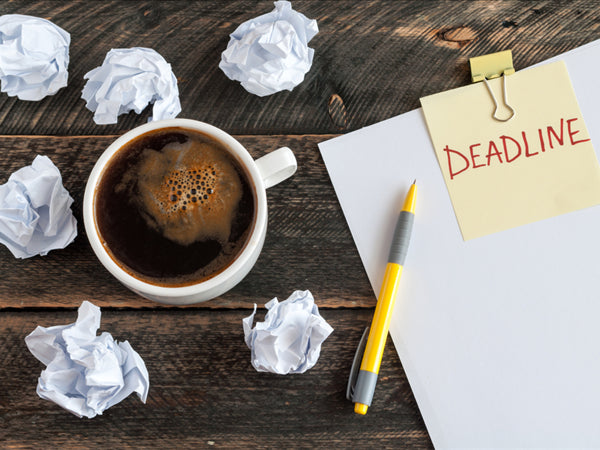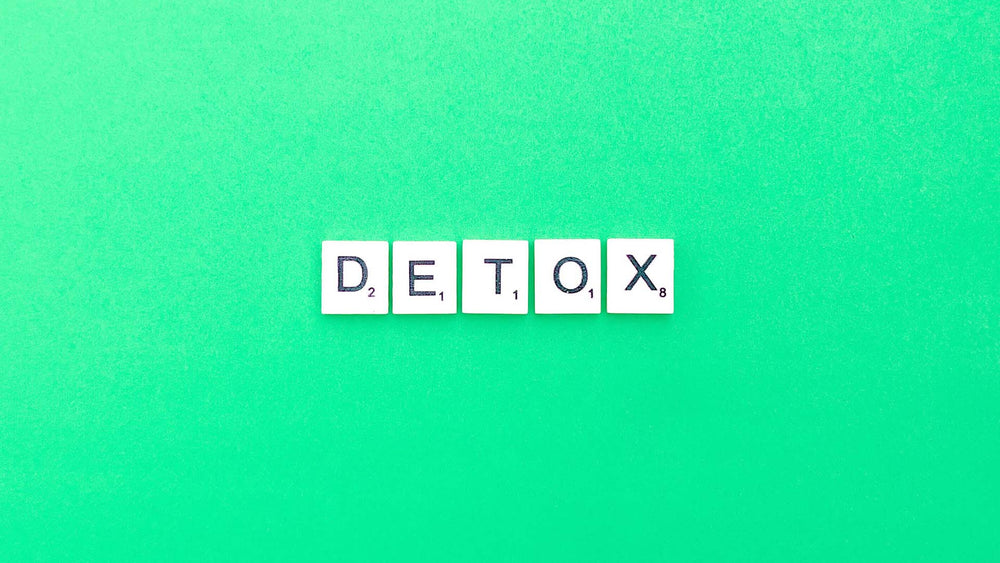Demanding clients, tight deadlines and perfectionist bosses can turn a dream job into a nightmare. Projects that cause short-term job stress aren't a problem for most people, as the workplace returns to normal within a few days or weeks. Chronic stress on the job, such as never-ending workload, conflicting or unclear directions from supervisors and having no control over work conditions can consume your life. If you don't take steps to reduce stress at work, it will carry over into your personal life. You may waste weekends obsessing over work instead of enjoying hobbies and time with family and friends. Work anxiety causes headaches, upset stomach, insomnia and difficulty concentrating. Chronic work stress leads to high blood pressure, obesity, depression or heart disease. You'll need to manage your stress better to avoid developing a serious health condition. Here are ten ways to reduce stress at work.
1. Assess Your Work Situation
Stress at work can make people emotionally and physically sick, and consume their thoughts even when they're far away from the office. Most people experience overwhelming tension in the workplace at least once in their lives, and controlling it can be tricky. Quitting a bad or stressful job isn't an option unless you have a lot of money saved up or another gig waiting for you. A bad job is often a Catch-22 situation. If you quit, you may be face a dire financial situation. If you get fired, you'll get unemployment, but how do explain why you were let go to potential employers?
Write down everything that bothers you about your job and determine when the problems started and what you think triggered them. You can only reduce stress at work when you're clear about the cause.
Learn how to manage stress better. No job is entirely stress-free. There will always be deadlines, the occasional overbearing supervisor, client or co-worker to deal with, and high performance expectations. Eat right and take breaks to recharge throughout the work day and on your days off. Plan your work day the night before or get to work a few minutes early to review your goals for the day. Keep a checklist for the day's work goals on your computer, Smartphone or a notepad on your desk.
2. Practice Mindfulness and Meditation
Take a deep breath, or better yet a few belly breaths when you're under pressure. Deep breathing soothes your nervous system, helping you stay rational and focused when you're under pressure at work. Practice meditation, yoga and pranayama (breath control in Sanskrit) at least a few times a week to stay centered. Here are a few meditation and mindfulness tips you can use to reduce stress at work.
3. Telecommute at Least Part of Your Work Week
Working at home won't eliminate job-related anxiety, but it can reduce stress by keeping you separated physically from annoying co-workers and supervisors. The accent is on your work when you telecommute, without unrelated office activities to get in the way. Much of the stress between co-workers in an office involves personality conflicts or minor infractions of company rules. Remote workers don't have to worry about officemates stopping by their desk to gossip, dress codes or “fitting in” with the crowd by going to lunch with co-workers.
When you do work in the office, cultivate a strong social support network to reduce stress and make the day go by faster. Find a group of co-workers who share your values and collaborate on projects with them.
4. Get More Exercise
Go to the gym before work or during lunch to channel some of your aggression on a treadmill or weight machine. Increasing physical activity releases endorphins and other hormones to numb painful feelings and reduce the effects of stress.
After work and on weekends, amp up your exercise routine. Walking, biking, hiking, aerobic dancing and other physical activities will keep you trim and increase energy and resilience. To reduce stress at work, you need to start with your lifestyle. Being in shape physically, calm and mentally focused gives an advantage against work overload and disorganized or petty co-workers.
Make Better Lifestyle Choices to Reduce Stress at Work
According to the Centers for Disease Control, 60% of Americans don't get enough sleep. When you're under stress, it's important to get at least seven hours of restful sleep every night. A good night's sleep resets your brain for the next day. Shut off electronics at least half an hour before going to sleep and keep our bedroom dark and quiet to get to sleep faster.
Eat healthy foods, including fruits, vegetables and whole grains. Blueberries, oatmeal, salmon, turkey and dark chocolate are great foods for stress relief. Bring whole grain crackers, nuts or fruit to munch on at work. Avoid grabbing a snack from the vending machine or eating fast food. Theses high-calorie choices only intensify the effects of stress, including high blood pressure and weight gain.
Take all your vacation and personal days. Participate in sports and other activities you enjoy. Explore your creative side by painting, writing or playing a musical instrument. Work stress can sap your energy, and creative hobbies revitalize you.
5. Talk to a Therapist or Career Counselor
When you're away from the office, venting to friends and family is fine – up to a point. Do you spend hours before and after work-and on your days off - complaining about your job to everyone around you? Then it's time to seek assistance from a professional. Depending on your situation, a therapist, career counselor or life coach may offer helpful advice. Consider other career choices, like training in a new field, freelancing or starting your own business. You may need to speak to a therapist to determine how you may be contributing to your on the job anxiety and learn new behaviors to reduce stress at work.
6. Set Work Boundaries
Whether you work remotely or in the office, make it clear that you aren't available 24/7. Refrain from answering work calls or texts at night or on weekends. Make it clear that you won't work through breaks and lunch hours, or work more than 40 hours a week unless it's necessary. Research shows that workers become less productive if they work more than 40 hours a week, due to increased stress and fatigue. When workers get less sleep and personal time, their efficiency fades.
If co-workers infringe on your time with gossip or unnecessary distractions, let them know their behavior is unacceptable. Good communication is the best way to reduce stress at work. Most people won't be aware what they're doing bothers you if you don't tell them. Change your office layout so you can see people entering your area from your desk. If you work in a cubicle, arrange it so you can see the entrance to your space behind you.
7. Be Proactive
You need to be proactive to control stress at work. Determine what you can control (the quality of your work, attendance, punctuality, etc.) and what you can't (an ill-tempered supervisor or lazy co-worker).
When dealing with annoying co-workers, don't take anything personally. Don't get defensive or contribute to arguments. Walk away or cut them off with a succinct, non-threatening remark (“My phone is ringing. I've got to go.”) You're in the office to do your job to the best of your ability, not to engage in a 9 to 5 version of Real Housewives.
This Huffington Post article gives a round-up of the most annoying types of co-workers and how to handle them.
8. Maintain Your Office or Cubicle
Add personal touches to your workspace to make you feel more comfortable. Photographs, books, artwork and mementos reinforce your personality and life story. In a stressful work situation, you can sometimes get lost in office politics and power struggles and lose sight of your core values.
Keep your desk clean and organized. Looking for memos or reports in a cluttered workspace wastes time and can inflame an already volatile situation. Clear out your email inbox every few days. An inbox clogged with hundreds of messages can cause you to accidentally overlook something important.
9. Identify the Cause of Stress and Look for a Solution
Avoid complaining or gossiping about bosses or co-workers. If there's a problem, find solutions instead of venting. Talk to a supervisor or union rep about your concerns. Use facts and keep calm, even if the situation upsets you. Your employer will be more likely to help you if you remain objective and business-like.
Identify the cause of stress. Do you have more projects than you can handle? Your supervisor may be able to hire an assistant to pare down the workload. Maybe you have the opposite dilemma - you're bored and need more challenging work. You may be able to transfer to another position. Unless you let your supervisor know that you're unhappy with the status quo, you won't be able to reduce stress at work. Don't stay quiet because you think speaking up will endanger your job. If you say nothing and seethe in silence, the stress will multiply, eventually putting your job and health in jeopardy.
10. Look at the Bright Side of Your Job
Look for ways you can concentrate on what's fulfilling about your job instead of what stresses you out. Maybe you work for a graphic design firm and have the freedom to flex your creative muscle, or you have great benefits that make dealing with an annoying co-worker a little more bearable.
Wheatgrass Supplement Tablets Strengthen Your Resilience to Stress
You can be proactive about reducing stress at work and hope management and co-workers will do their part. A 2013 survey by the American Psychological Association Center for Excellence showed that only 36% of employees experiencing chronic stress at work believed their employers offered them sufficient help to handle that stress.
Reduce stress at work by making sure you get all the nutrients you need to stay strong and focused. The superfood wheatgrass offers dozens of vitamins and minerals, amino acids, hundreds of enzymes and phytochemicals to energize you and keep you healthy. Here are just some of the ways the nutrients in wheatgrass help you control the effects of stress.
- Vitamin C and Vitamin A contain antioxidants to fight colds and inflammation and improve skin health. Antioxidants are important to keep your skin clear if your face breaks out when you're under stress.
- Wheatgrass contains 70% chlorophyll, the green pigment found in plants. The magnesium in chlorophyll is the most important mineral for managing stress and a co-factor for hundreds of enzymes. Research shows that most Americans don't get enough magnesium in their diets, so taking a wheatgrass supplement tablet will help you stay calm during hectic times and aid in overall body function.
- Research has proven B-complex vitamins can reduce stress at work. An Australian study showed that workers who received B-complex vitamins for three months had lower stress, better mood and a reduction in confusion.
- Tryptophan, one of the amino acids in wheatgrass, is a building block for the calming neurotransmitter serotonin, which helps maintain mood balance.
Zeal O2, HappyGirl and REVV from Wheatgrass Love Provide Hundreds of Nutrients to Help You Reduce Stress at Work
At Wheatgrass Love,we offer two wheatgrass supplement tablets and a wheatgrass energy wafer to help you reduce stress at work, feel more focused and increase vitality.
HappyGirl Mood Enhancment Supplement contains high-value wheatgrass with added B-complex vitamins to neutralize stress and help you focus. If you're in a stressful situation at work (or anywhere else), HappyGirl can help regain your composure and get the results you need. The herbal blend added to HappyGirl's wheatgrass includes over a dozen stress-relieving superfoods, including gingko biloba, green tea extract, cayenne pepper and ginseng. HappyGirl helps women,men and seniors control stress and balance mood. Read more about HappyGirl here: http://wheatgrasslove.com/products/mood-enhancement-supplement
REVV Natural Energy Supplement is a 100% natural source of instant energy and vitality. These tasty chocolate wafers are formulated with high-value wheatgrass, cocoa and periwinkle herb, which have stress-relieving qualities. We've included Choline Bitartrate in REVV to guard against memory loss and increase blood flow to the brain, as well as energy-boosting caffeine and L-taurine. Read more about REVV here:http://wheatgrasslove.com/products/natural-energy-supplement
If you suffer from high stress at work, there's a good chance you'll have to maintaining your weight or even losing weight. A stressful work atmosphere may cause you to eat more of the wrong foods, even when you're trying your best not to. Zeal O2 Natural Weight Loss Supplement can help anyone who needs to reduce stress at work control their weight while controlling job-related anxiety The hundreds of nutrients in wheatgrass help you maintain good digestion, healthy skin and build red blood cells. We've added extra B-complex vitamins to the B vitamins already in wheatgrass to give you more energy and reduce stress at work. Our proprietary blend works with wheatgrass to boost your resistance to stress while it burns fat. Citrus Aurantium (bitter orange), a safe, 100% natural alternative to ephedra, green tea extract, cayenne pepper, damiana, gotu kola, ginseng, ginger and Hawthorne berry are some of the health-promoting herbs in Zeal O2. Read more about Zeal O2 here: http://wheatgrasslove.com/products/natural-weight-loss-supplement
Call us at 877-303-1717 to order Zeal O2, REVV or HappyGirl. Sign up for our newsletter to get the latest updates from Wheatgrass Love!
















